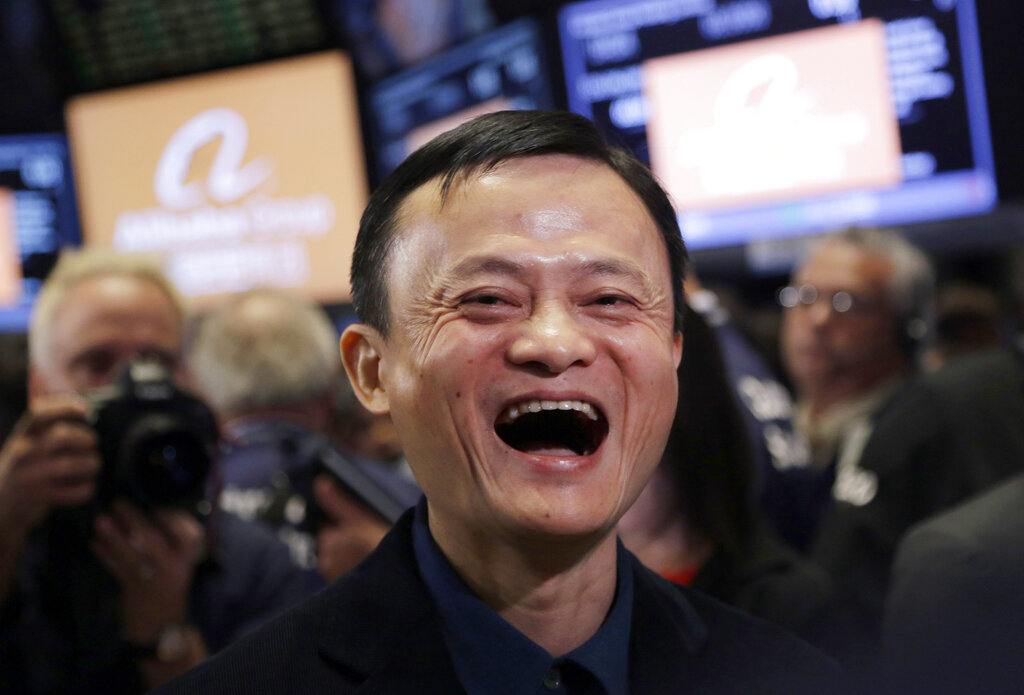
E-commerce major Alibaba (09988, BABA) announced a major restructuring yesterday, just after the company's co-founder Jack Ma returned to China after spending roughly a year overseas. Daniel Zhang, chief executive officer at Alibaba, wrote in an internal letter that Alibaba is turning into holding company. The group will be split into six units:
1. Alicloud Intelligence,
2. E-commerce platform Taobao Tmall,
3. Local services,
4. Cainiao,
5. International digital commerce, and
6. Entertainment.
Excluding the Taobao Tmall business group, which will be wholly owned by Alibaba, the other five business groups will be independently financed. These business groups will have their own boards of directors and their own CEOs. They can also explore fundraising via external capital, or even list on exchanges via an initial public offering (lPO) if they are eligible.
Investors cheered the restructuring plan, as shares in Alibaba soared 15% at the Hong Kong market open.
Chelsey Tam, senior equity analyst at Morningstar, believes the separate units set up under the group level will enable agility amid a rapidly changing business environment. She thinks it is positive for Alibaba’s stock in the long-term.The fair value estimate of US$ 177 per ADS (HK$ 171 per share) is retained.
Why Is a Leaner Structure a Positive for Alibaba’s Investors?
After the regulatory clean-up of 2021, China has vowed to support its private enterprises by easing some of those sweeping crackdowns. However, the regulatory environment is still stringent, pushing Alibaba to enhance its overall agility.
Tam cites the internal letter, saying: “It appears that the CEOs of the units under Alibaba may not have to report to the Group CEO Daniel Zhang. This will speed up the decision-making process for these companies, allowing them to be more agile.”
Other than agility, there is a profitability and cost angle to the restructuring plan. The six units will operate as individual companies, meaning that they run their own profits and/or losses. With this set-up, management’s compensation will be linked to their business performance.
Tam adds: “If these individual companies remain unprofitable and cannot raise capital to sustain themselves, they may have to sell to competitors. That could help consolidate the companies’ respective markets and reduce competition.”
In the past, Alibaba's unprofitable businesses could subsidize their losses and rely on cash from the other, more profitable parts of the business. “Now, unprofitable businesses will be pushed to strive on their own. This should boost the capital allocation efficiency of Alibaba Group companies,” explains Tam, adding that there should be more transparency in the financials of each of these business groups.
Tam also expects the firm to trim the scale of the middle and back offices, resulting in higher cost efficiency. These middle to back offices will be integrated to relevant business groups.
Which Units Will Be Spun Off First?
To list on Hong Kong’s mainboard, IPO applicants will have to meet tests on profit thresholds, market capitalization, revenues, and cash flows. Additionally, they would require a track record of at least three financial years. Other requirements include management continuity for at least three preceding financial years and ownership continuity and control in the most recent financial year.
Tam thinks all the six businesses can meet the market capitalization requirement of HKD 4 billion. But only the China commerce segment and the cloud segment can meet the requirements of profitability - not less than three financial years during which core business profit attributable to shareholders must not be less than HK$ 35 million in the most recent year, and not less than HK$ 45 million in the two preceding years.
However, before preparing for an IPO in Hong Kong, these six units will need to finalize their management, Tam continues.
Alibaba Group will be a holding company and may have a holding company discount, which means the conglomerate’s market capitalisation is less than the sum of the subsidiaries and other net assets that it holds.
Tam points out that Alibaba is not the only company to feel the pressure from rapid market changes and a more regulated environment. She expects more internet peers to follow suit and spin off some of their subsidiaries.












.png)



.jpg)





